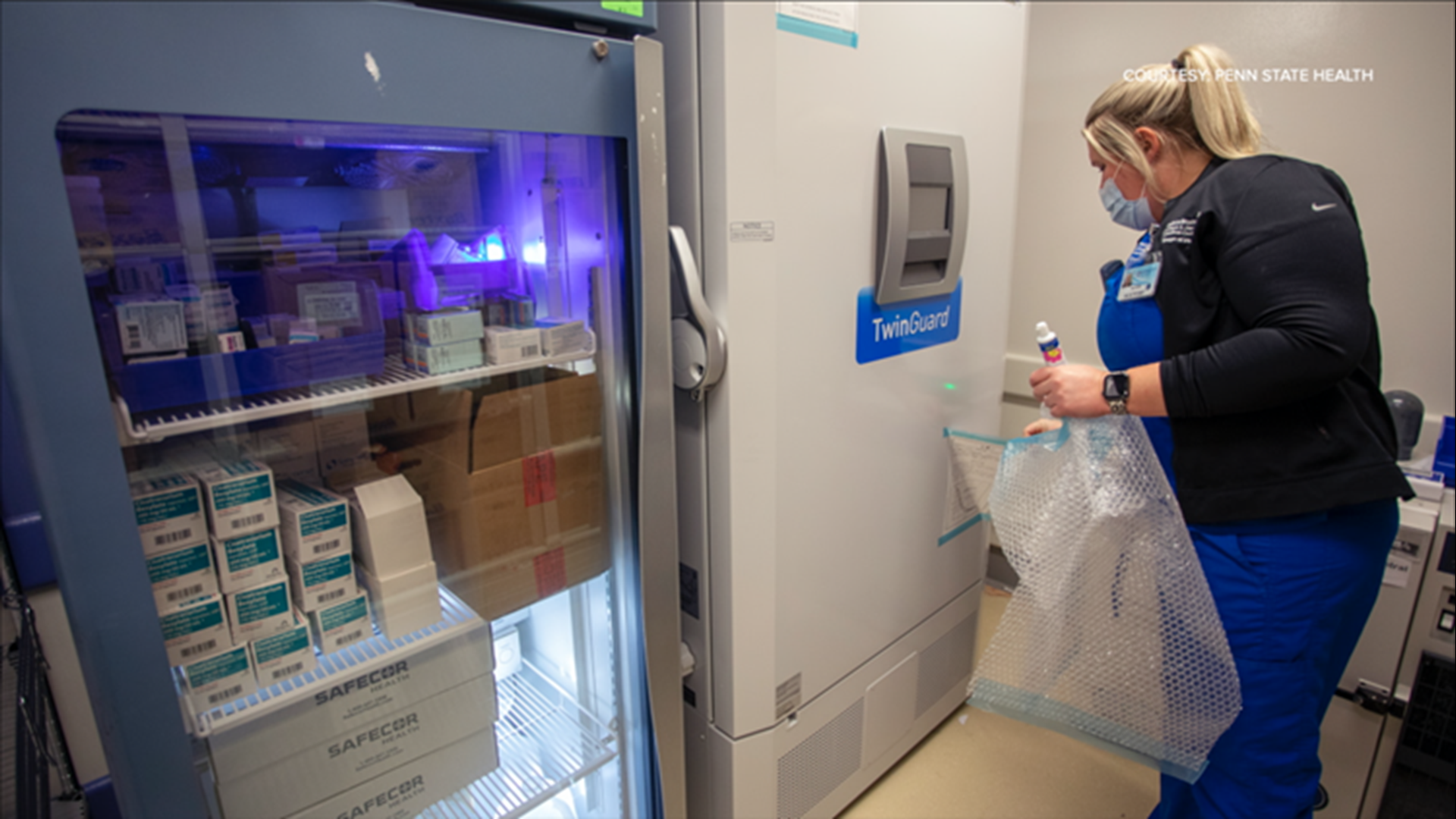HARRISBURG, Pa. — Healthcare workers and the vulnerable population within skilled nursing facilities are at the front of the line when the first coronavirus vaccine becomes available in Pennsylvania. The state will give priority to those groups since doses are expected to be limited.
Major healthcare systems are preparing to receive thousands of doses of a COVID-19 vaccine. Local hospitals will play a leading role in administering the vaccine to the region.
Penn State Health expects to receive its first shipment of Pfizer’s coronavirus vaccine within three to four days. The freezer for vaccines at Hershey Medical Center can hold 10,000 vials, which is a total of 50,000 doses, a hospital spokesperson said.
Healthcare workers are first in line to receive the vaccine. UPMC hospitals anticipate administering a vaccine to all of their frontline workers who want one by the end of January. It will not be mandatory.
UPMC plans to administer Pfizer’s vaccine in its hospitals and will distribute Moderna’s vaccine to all of its skilled nursing facilities.
“Right now, we’re working very hard on allocating the vaccine we’re getting for healthcare workers. I think that’s going to be the next one to two months’ work at least. We will build as we understand allocation’s coming to us, preparations to administer vaccines to the community as well, when that time comes,” explained Dr. Graham Snyder, medical director of infection prevention and hospital epidemiology at UPMC.
UPMC administrators said they have added nearly 200 nurses to their staff within the last week to keep up with a surge in COVID-19 patients, but maintain that their hospitals are not overwhelmed.
Once a coronavirus vaccine has Emergency Use Authorization from the FDA, a group of experts from UPMC will independently review the data to determine that the vaccine is safe and effective before administering any doses.
Next in line to receive the vaccine are people involved in broader healthcare administration, other essential workers (such as teachers and first responders), and people with underlying medical conditions.
It will be months before the vaccines are available to the general public and healthy Pennsylvanians will be last in line.
“It’s impossible to predict when we will be able to vaccinate everybody,” Dr. Snyder said. “We are still waiting further data on both how safe and how well the vaccines work, including, importantly, the way they work in our most vulnerable individuals, the elderly.”
Some reported side effects of the vaccine include fever, fatigue, or arm pain—which could require a day or two off from work. Doctors said these symptoms are a normal and healthy immune response to the vaccine. They believe the side effects are a small price to pay for the benefits of immunization.
“The study has been going on for four months so it looks like it’s effective for at least three months, probably four months. I suspect it’ll typically last six months to a year,” said Dr. Thomas Ma, chair of the Department of Medicine at Milton S. Hershey Medical Center.

